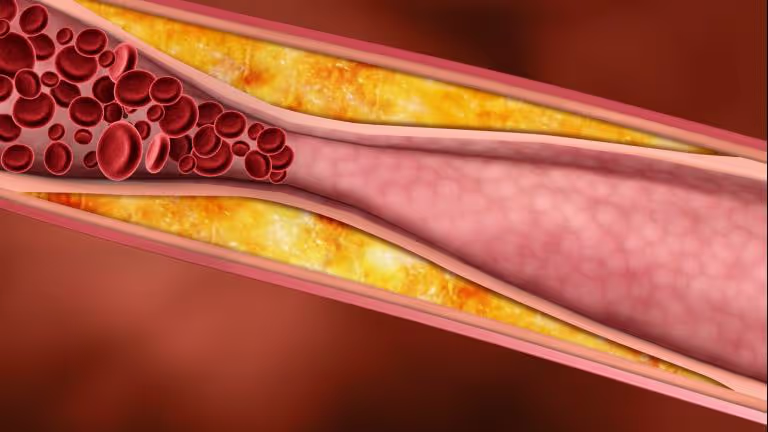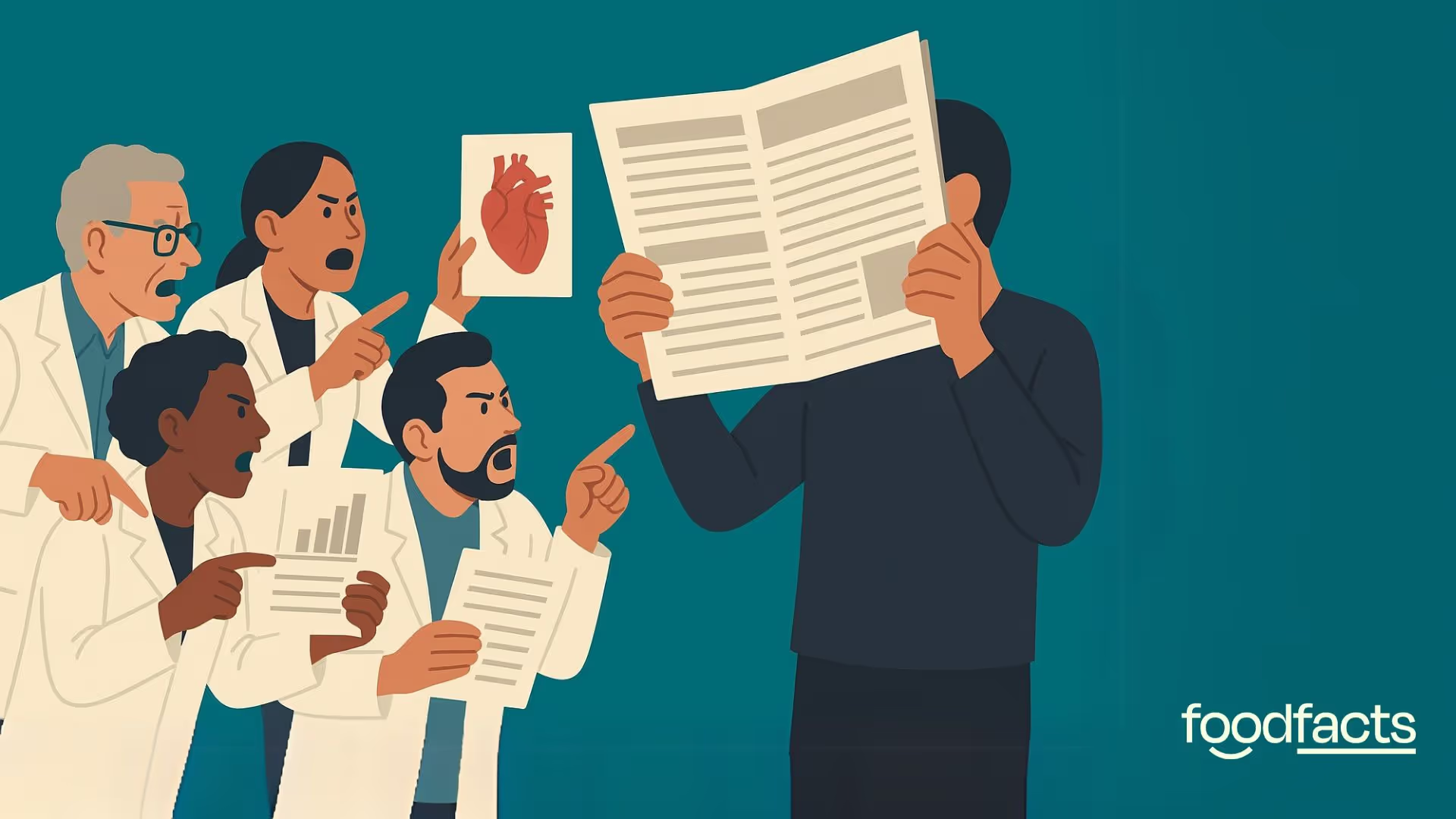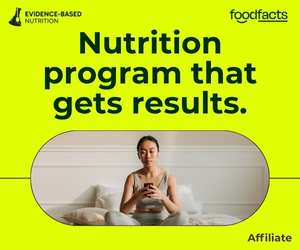
No, the medical community has not reversed its position on high cholesterol





Coral Red: Mostly False
Orange: Misleading
Yellow: Mostly True
Green: True
Learn more about our fact-checking policies
On April 20th, the Daily Mail reported that a recent study “[revealed] the biggest medical myth we've all fallen for.” The study in question looked at people following a high-fat, low-carb diet (“keto diet”), all with high cholesterol levels. It received significant criticism from scientists for the way in which the researchers framed their findings, particularly on social media, which could mislead the public.
In this fact-check, we address the discrepancies between the study’s reception by the scientific community, and its sensational reporting. In particular, we fact-check the implications of the Daily Mail’s article that the scientific community is reversing its stance on high cholesterol.
Full Claim: "Researchers are beginning to understand that the medical field has drastically oversimplified cholesterol and its role in the body [...] But now, researchers are challenging that long-held belief, arguing cholesterol levels aren’t the medical ‘check engine light' they’ve long been made out to be and there are other ways to protect yourself that don't include skipping a steak dinner and taking a pill every day.”
The Daily Mail article blurs the distinction between the small group of researchers behind a new keto study and the broader scientific community, inaccurately implying that scientists at large are questioning long-established links between cholesterol and heart disease. In reality, the study’s framing was sharply criticised by experts across nutrition and cardiology, who reaffirmed that the scientific consensus on LDL cholesterol and cardiovascular risk remains strong and well-supported.
A lot of us learn about new scientific studies through news outlets and social media. Holding media platforms accountable is important to ensure new findings are communicated clearly and without distortion. Without accountability, following misleading nutritional advice could lead to harm.

Scientific language is careful, nuanced, and often deliberately cautious. Sensational headlines might grab attention, but they can easily twist or oversimplify the science. It’s always worth taking the time to check the facts.
The Claim In Context
It is not uncommon for social media influencers to distort findings from single scientific studies, often exaggerating a study’s conclusions and its implications for the general public. Nutrition experts on social media are often quick to correct such distortions, placing studies in their proper context and highlighting their limitations - limitations often acknowledged within the studies themselves. In contrast, the response to the recent KETO cholesterol study was notably stronger, with doctors, dietitians, and researchers expressing significant concern about how the researchers themselves chose to frame their conclusions, and how the media presented their findings.

Dr. Brad Stanfield remarked that “everything that could go wrong, has gone wrong.” Dr. Gil Carvalho, a physician and research scientist, noted that the study shocked the scientific community. So much so that a group of seven researchers, combining expertise in nutrition, cardiology, and the treatment of lipid (cholesterol) disorders, were compelled to write an open letter to the Journal of the American College of Cardiology (JACC) to express their concerns. In the letter, shared online as a pre-print, they warned that the study’s framing and reporting presented a “genuine risk that these conclusions may be misinterpreted by clinicians and the public alike, potentially leading to inappropriate reassurance in cases of elevated ApoB or LDL-C levels, misinformed clinical decisions, and avoidable harm.”
The Daily Mail article does not mention these concerns, and claims that “researchers are beginning to understand that the medical field has drastically oversimplified cholesterol and its role in the body.” This claim is repeated several times throughout the article, suggesting that there has been a drastic change in the way scientists and researchers view the role of LDL cholesterol in heart disease.
However, this is misleading. The researchers in question are the group of scientists that published the KETO study. While this group, in part because of their new study, believes LDL-C is not always a major risk factor for heart disease, the majority of scientists, researchers, and health professionals, still support the notion that high LDL-C and ApoB levels are a major risk factor for atherosclerotic heart disease. This is based on a large body of high quality evidence, which has not been undone by the new KETO study.
We reviewed the broader scientific literature on cholesterol and summarised the key concerns with the study, as expressed by experts in nutrition and cardiology.
Scientific Consensus On Cholesterol
Based on the broader scientific literature, the role of cholesterol—particularly LDL-C (low-density lipoprotein cholesterol)—in cardiovascular disease is well-established and not oversimplified as the claim suggests:
- LDL-C is causally linked to atherosclerosis. Atherosclerosis is a condition where plaque, a buildup of fat, cholesterol, and other substances, clogs the arteries.
- Evidence from over 200 prospective cohort studies, including more than 2 million participants and over 150, 000 cardiovascular events, shows a clear and consistent relationship between elevated LDL-C and increased risk of atherosclerotic cardiovascular (source).
- Mendelian randomization studies, another form of high quality evidence, looking at over 393,000 people also show that higher LDL cholesterol and ApoB levels are associated with a higher coronary heart disease risk (source).
- A systematic review of Randomized Controlled Trials (RCTs) show significant reductions in major adverse cardiovascular events and death from cardiovascular disease with lipid-lowering therapies (source).
- Evidence from over 200 prospective cohort studies, including more than 2 million participants and over 150, 000 cardiovascular events, shows a clear and consistent relationship between elevated LDL-C and increased risk of atherosclerotic cardiovascular (source).
- LDL-C exposure over time is what drives atherosclerosis—not momentary elevations or isolated readings (source). This nuance is already embedded in current clinical guidelines which emphasise lifetime risk and cumulative exposure (source).
The claim that the medical field has drastically oversimplified cholesterol and its role in the body is not supported by the balance of scientific evidence. Rather, current medical understanding is based on an evidence-based framework that considers cholesterol as part of a multifactorial risk profile for cardiovascular disease.
Scientists Raise Red Flags On New Keto Study
The study in question looked at people following a low-carb, high-fat diet ("keto") who had unusually high cholesterol but were otherwise healthy and slim. These people are called "lean mass hyper-responders." The researchers followed them for a year to see how their heart health changed.
Here’s a summary of the red flags that were raised following the study’s publication. For a full detailed account of what happened, check out this post by Dr. Gary McGowan.
1. Missing the main result
Before starting, the researchers said their primary outcome was to measure how much dangerous heart plaque (fatty build-up) increased over a year. However, they didn’t report this key result explicitly in the published paper. Experts noted that a graph was included without written results. Actual figures were only released within a post on X by one of the authors, following significant pressure to do so by fellow researchers on social media.
The numbers released didn’t support the reassuring tone of the study’s framing on social media. While on X, author Nick Norwitz wrote that “Most participants showed no or minimal progression of coronary plaque,” the actual figures revealed that there was significant plaque progression, which in fact was worse than anticipated. To contextualise those numbers, Dr. Brad Stanley noted that progression among participants exceeded that seen in other studies of high-risk individuals (e.g., those with diabetes or hypertension).

2. Misleading framing
Instead of focusing on plaque progression, the paper emphasised that LDL cholesterol or ApoB levels did not predict plaque changes - ApoB is the main component of LDL. But scientists’ reactions highlighted that this conclusion was highly misleading.
The study included only people with very high cholesterol — there was no low-cholesterol group for comparison. So, when the researchers claimed "no link" between cholesterol levels and plaque growth, this was meaningless: everyone already had sky-high cholesterol. Dr. Gary McGowan said it was akin to looking at people who are otherwise healthy and smoke between 4 and 6 packets of cigarettes per day, and “even though the cohort as a whole has higher rates of plaque progression, you conclude that there was no real difference between those who smoked 4 packs or day and those who smoke 6 packs a day, leading you to tell people that smoking actually doesn’t matter for heart disease.”
3. More misleading Language
The study’s authors repeatedly called their project a "trial" — but it wasn’t a proper clinical trial with random assignment and strict controls. Calling it a "trial" suggests the findings are more reliable than they are.
4. Risky Public Messaging
Experts are worried that this could convince people with dangerously high cholesterol not to seek treatment. One of the comments on the Daily Mail article highlights this issue: “The greatest medical myth ever perpetuated is WE SHOULD LISTEN TO DOCTORS!”
Final Thoughts
While the Daily Mail article quotes one of the study’s lead authors acknowledging that “one paper can’t overturn [this prevailing idea] [that high LDL cholesterol can be a predictor of heart disease]”, the sensational headline and narrative (“the biggest medical myth we’ve fallen for”) risk promoting dangerous health misinformation.
To support the claim that focusing on high LDL cholesterol is a major medical myth, the article references a recently unveiled scandal from the 1950s-1970s, where the sugar industry was found to pay scientists to downplay sugar’s role in heart disease and highlight saturated fat as the main culprit instead (source). This is also a popular argument on social media, particularly among those who promote high-fat diets. However, the misdirection from sugar lobbyists does not negate the evidence-based conclusions about cholesterol, summarised in this fact-check; instead, it exposes how scientific integrity can be manipulated when industry influence isn’t checked. You can read more about this controversy in another related fact-check.
The reaction to this new KETO study highlights the gap between sensational reporting and careful scientific communication, illustrating why critical thinking and reliable sources are more important than ever when interpreting nutrition science.
We have contacted Cassidy Morrison at the Daily Mail and are awaiting a response.
Disclaimer
This fact-check is intended to provide information based on available scientific evidence. It should not be considered as medical advice. For personalised health guidance, consult with a qualified healthcare professional.
Stand Against Nutrition Misinformation
Misinformation is a growing threat to our health and planet. At foodfacts.org, we're dedicated to exposing the truth behind misleading food narratives. But we can't do it without your support.
Sources
Reactions to the study:
Dr Gary McGowan’s analysis: https://www.instagram.com/reel/DIrj_Heu8Vl/?igsh=b2ttMHBqbXVzMTZy
Kirwan, R. et al. (2025). “Rapid Plaque Progression Amongst Lean Mass Hyper-Responders Following a Ketogenic Diet with Elevated ApoB and LDL-Cholesterol.”
Nutrition Made Simple!’s analysis: https://www.youtube.com/watch?v=ZDr4iFqENgc
Dr. Brad Stanfield’s analysis: https://www.youtube.com/watch?v=JE1EACWZiWw
References:
Ference, BA. et al. (2017). “Low-density lipoproteins cause atherosclerotic cardiovascular disease. 1. Evidence from genetic, epidemiologic, and clinical studies. A consensus statement from the European Atherosclerosis Society Consensus Panel.”
Richardson, TG. et al. (2020). “Evaluating the relationship between circulating lipoprotein lipids and apolipoproteins with risk of coronary heart disease: A multivariable Mendelian randomisation analysis.”
Dugré, N. et al. (2023). “Lipid-lowering therapies for cardiovascular disease prevention and management in primary care.”
Zhang, Y. et al. (2021). “Association Between Cumulative Low-Density Lipoprotein Cholesterol Exposure During Young Adulthood and Middle Age and Risk of Cardiovascular Events.”
Feingold KR. (2025). “Guidelines for the Management of High Blood Cholesterol.”
Kearns, CE. et al. (2016). “Sugar Industry and Coronary Heart Disease Research: A Historical Analysis of Internal Industry Documents.”



foodfacts.org is an independent non-profit fact-checking platform dedicated to exposing misinformation in the food industry. We provide transparent, science-based insights on nutrition, health, and environmental impacts, empowering consumers to make informed choices for a healthier society and planet.

Was this article helpful?
















.svg)
